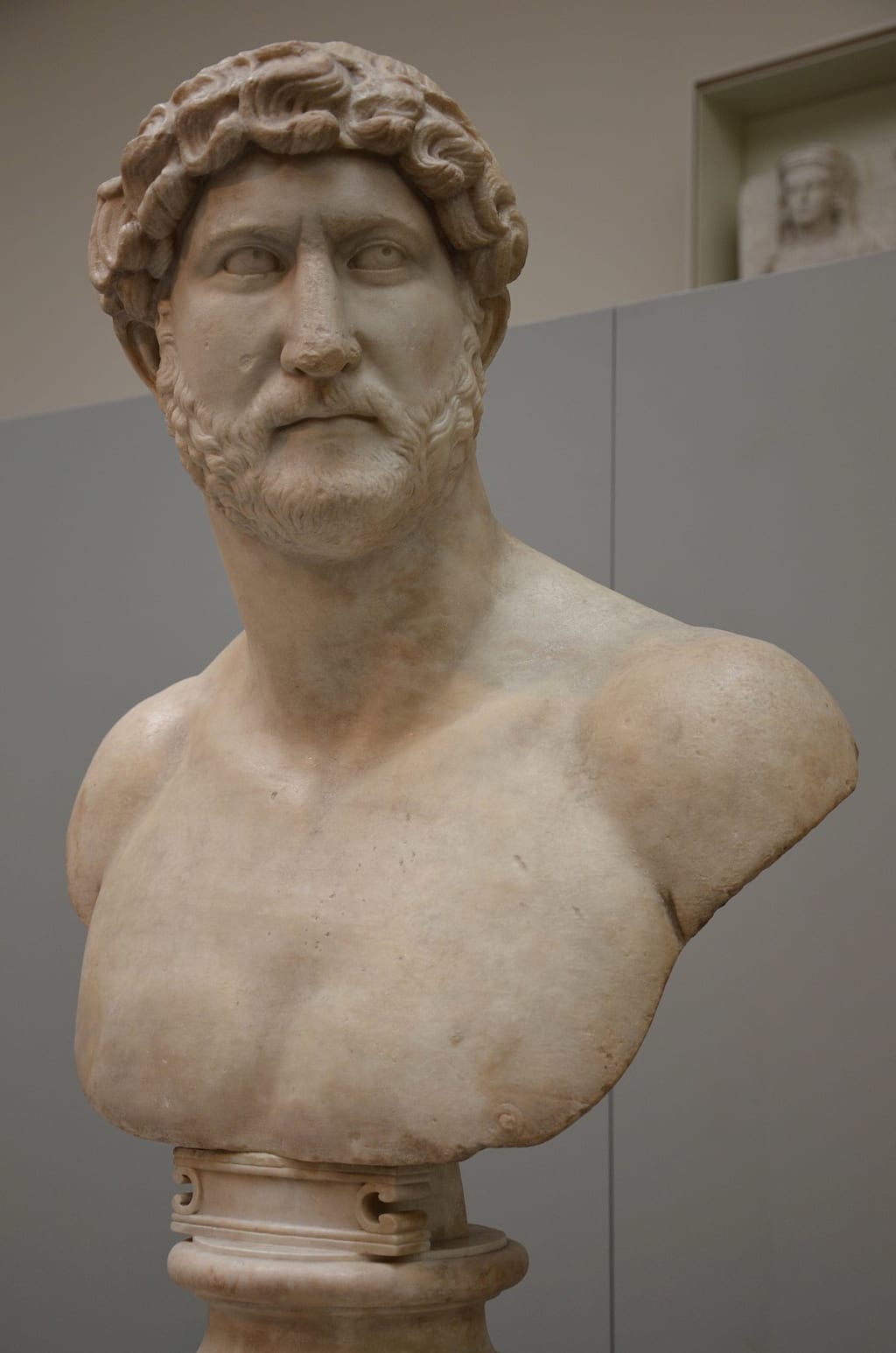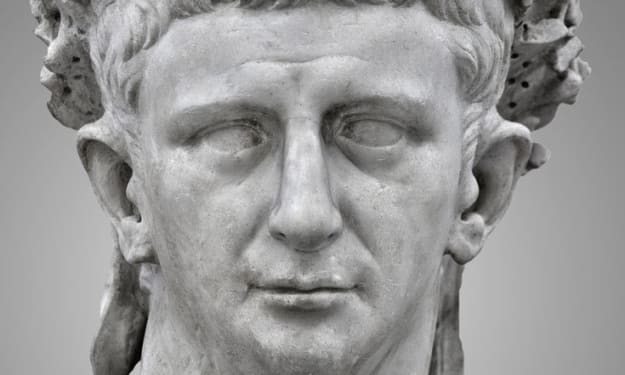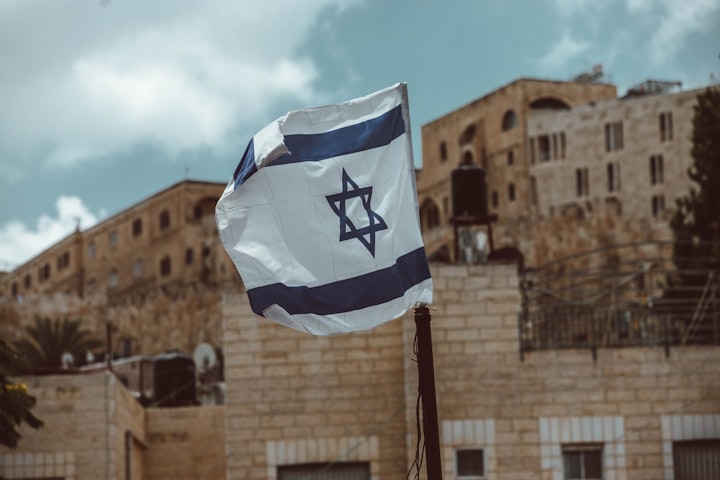Hadrian, Emperor of Rome
One of the better Roman Emperors, renowned for his famous Wall

Emperor Hadrian, who ruled the Roman Empire from 117AD to 138AD, is best remembered for ordering the construction of the wall in northern England that bears his name. His reign was largely peaceful – due in no small measure to Hadrian’s constant vigilance for signs of trouble on the Empire’s borders.
Hadrian’s early life
Publius Aelius Hadrianus, who is usually simply referred to as Hadrian, was born in Rome in 76AD. His family came originally from Spain, as did that of his kinsman Trajan, who was largely responsible for Hadrian’s upbringing when the latter’s own father died in 86AD.
Hadrian was a keen student at a young age, and became a soldier in Spain at the age of 15. When Trajan became emperor in 98AD, Hadrian married Julia Sabina, a great-niece of Trajan, and rose rapidly in the emperor’s favour. He became a quaestor in 101, a praetor in 107 and a consul in 109.
He was active alongside Trajan in various military campaigns, such as the Second Dacian War of 104-6, and in the war against the Parthians (115-16), having been made governor of Pannonia (roughly equivalent to modern Hungary) in 108. Trajan fell ill while still campaigning, and entrusted the army to Hadrian when he left to return to Rome. However, he died before reaching Rome, in August 117, and Hadrian was declared emperor by the legions in Syria, a decision that was later ratified by the Senate.
Emperor Hadrian
His first act as emperor was to make peace with the Parthians and return to Rome, but he then had to leave again to deal with an invasion in Moesia (modern Serbia). He also had to deal with a revolt against his rule by a number of Roman nobles, all of whom were executed. In order to keep the peace at home, he provided lavish entertainments and cancelled all tax arrears accrued over the previous 15 years.
Feeling secure in his own back yard, he felt able to spend most of his reign as emperor travelling through the Empire to inspect the provinces at first hand, starting in 119. It was while on this tour that he ordered the building of a wall across northern England, and much of this wall can still be seen today. His main concern was to consolidate the Empire rather than seek further expansion, and the wall was part of that plan. It was not so much a defensive wall against marauding tribes from the north as a symbolic gesture of saying “thus far and no further”, and a means of establishing a trading regime so that goods entering and leaving the Empire at this point could be properly monitored.

His travels also took him to Africa, Spain and the East, and he settled in Athens for three years from 123 to 126, where he was particularly generous to the Greeks.
In 131 war broke out with the Jews, who were in revolt over the establishment of a new Roman colony on the site of Jerusalem (which had been largely destroyed in 70AD). This colony was part of a deliberate plan by Hadrian to destroy all vestiges of Jewish nationalism, with one measure being the outlawing of circumcision. The colony, named Aelia Capitolina, included a temple to Jupiter on the site of Solomon’s Temple. The war lasted for five years, with the whole area being reduced to a state of devastation.
In his last years, Hadrian’s health failed and he became suspicious, despotic and cruel. He had no children of his own, and his first adopted successor predeceased him. He then adopted Antoninus, who became emperor (as Antoninus Pius) when Hadrian died in 138, at the age of 62.
Hadrian’s reputation
Hadrian’s reign was one of the happiest in the long history of the Roman Empire, with many years of peace. He was keen to extend Roman law to the provinces, drawing up codes of laws that were remarkably humane and aimed at improving public morality.
As well as the famous wall, his building works included aqueducts, harbours and other public buildings. He was particularly active in his favourite city, Athens, where he built an entire new city to the south of the existing one.
He was a patron of the arts and literature, being a writer himself. He also established a scientific institution at Rome, the Athenaeum, which was still in existence many years after his death.
Rome’s emperors included many who were unspeakably evil and caused misery and pain wherever they went. Hadrian’s record was by no means spotless, particularly as far as his policy towards the Jews was concerned, but in general terms he must be considered as one of the wisest and best of the emperors.
About the Creator
John Welford
I am a retired librarian, having spent most of my career in academic and industrial libraries.
I write on a number of subjects and also write stories as a member of the "Hinckley Scribblers".






Comments
There are no comments for this story
Be the first to respond and start the conversation.